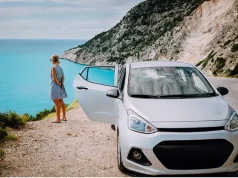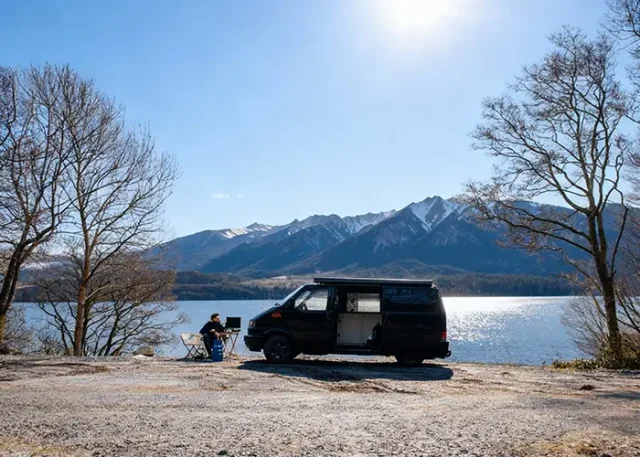
The way we explore the world has transformed dramatically over the past decade. Gone are the days when travel meant rigid itineraries, cramped hotel rooms, and being tethered to tourist hotspots. Adventurers are rewriting the rulebook, embracing a lifestyle where freedom, technology, and comfort converge on four wheels. Motor homes and campervans have evolved from simple utility vehicles into sophisticated travel companions, while cutting-edge optical technology and smart accessories have opened new dimensions of outdoor experience.
Whether you’re gazing at distant galaxies through advanced optics or waking up to a new horizon every morning, modern exploration is about crafting journeys that blend innovation with wonder. This article explores how travel vehicles, technology scopes, and thoughtfully chosen accessories are creating the ultimate adventure ecosystem for the modern nomad.
The Modern Campervan Movement
From Basic Vans to Smart Travel Companions
The humble campervan has undergone a remarkable metamorphosis. What began as converted delivery vans with basic sleeping platforms has evolved into intelligent, feature-rich living spaces that rival studio apartments in functionality. Today’s campervans incorporate smart climate control systems that adjust temperature based on occupancy and weather conditions, sophisticated power management setups with lithium battery banks and inverters, and seamless GPS integration that tracks not just routes but also elevation, fuel consumption, and nearby amenities.
Solar panels have become standard rather than luxury additions, allowing travelers to generate their own electricity while parked in remote locations. Wi-Fi connectivity through cellular boosters and satellite systems means you can work from a mountaintop or catch up on emails from a beach parking lot. Some premium models even feature voice-activated controls, allowing occupants to adjust lighting, temperature, and entertainment systems hands-free.
The remote work revolution accelerated this transformation exponentially. When millions of professionals discovered they could work from anywhere, the appeal of mobile living skyrocketed. Sustainable travel considerations have further fueled demand, with eco-conscious travelers seeking alternatives to flight-heavy tourism and resource-intensive hotel stays.
Why People Are Choosing Motor Homes Over Hotels
The financial mathematics are compelling. While a motor home represents a significant upfront investment, the elimination of nightly accommodation costs creates long-term savings that traditional travelers simply can’t match. But economics tell only part of the story. Motor homes deliver something hotels never can: the freedom to change your mind, to follow an unexpected road, to wake up overlooking an ocean one morning and beside a mountain lake the next.
The “road lifestyle” culture has exploded among diverse demographics. Young professionals in their thirties are embracing van life as a way to explore while building careers remotely. Retirees are discovering that retirement doesn’t mean slowing down—it means finally having time to see everything they’ve postponed. The campervan and motor home market experienced unprecedented growth following the 2020 travel disruptions, with sales increasing by over forty percent in many regions as people sought safer, more flexible travel options that didn’t depend on crowded airports or shared accommodations.
Inside the Ultimate Mobile Living Space
Compact Comfort Meets Innovation
Modern motor home interiors showcase engineering ingenuity at its finest. Modular furniture transforms spaces throughout the day—a dining table becomes a work desk, then converts into bed support at night. Kitchen units feature collapsible elements that expand when needed and tuck away to maximize living space. Sleeping systems utilize memory foam mattresses, adjustable bed platforms, and even Murphy-style foldaway designs that free up daytime square footage.
Manufacturers are increasingly incorporating eco-friendly materials like bamboo flooring, recycled fabric upholstery, and low-VOC finishes that improve air quality in confined spaces. Energy-efficient appliances—from 12-volt refrigerators to induction cooktops—minimize power consumption while delivering full functionality.
The spectrum ranges from minimalist builds emphasizing simplicity and low maintenance to luxury motor homes featuring marble countertops, rainfall showers, and entertainment systems that would impress home theater enthusiasts. Both approaches have merit, depending on individual preferences and travel style.
Tech Tools for Smarter Camping
The integration of technology has revolutionized how we experience camping. Smart lighting systems adjust color temperature throughout the day, promoting natural circadian rhythms even when living in a vehicle. IoT-based monitors track water tank levels, battery charge status, and propane reserves, sending alerts to your smartphone before supplies run critically low. Mobile app controls let you pre-heat your motor home before returning from a hike or verify that doors are locked from anywhere.
These technological upgrades transform camping from a rustic compromise into a connected, comfortable, and sustainable lifestyle choice. Security systems with motion sensors and cameras provide peace of mind in unfamiliar locations, while automated awnings extend or retract based on wind speed and sun position.
Optics and Vision: Seeing Beyond the Horizon
The Role of Tech Scopes in Modern Exploration
Technology scopes represent a fascinating intersection of optical science and digital innovation. These devices—encompassing thermal imaging, digital magnification, and night-vision capabilities—have migrated from military and security applications into the civilian adventure space. Wildlife observers use thermal scopes to detect animals in complete darkness without disturbing them with visible light. Safety-conscious travelers employ them to scan unfamiliar terrain after dark. Photographers leverage their capabilities to capture nocturnal scenes impossible with conventional equipment.
Many motor home travelers are now equipping their gear with advanced zero tech scopes for clarity and precision on rugged terrains. These optical tools prove invaluable when navigating backcountry roads, identifying potential hazards, or simply observing nature in ways impossible to the naked eye. The technology has become increasingly accessible, with entry-level models offering impressive performance at reasonable price points.
Combining Optics with Adventure Gear
Modern adventurers are building comprehensive optical ecosystems. High-quality binoculars remain essential for daytime observation, while drones equipped with 4K cameras provide aerial perspectives that reveal hidden trails and survey camping spots before arrival. Telescopes designed for portability allow stargazing from dark-sky locations far from urban light pollution. Augmented-reality glasses are emerging as the next frontier, overlaying navigation data, point-of-interest information, and even wildlife identification directly onto your field of view.
This optical innovation blends seamlessly with other outdoor exploration gear. Smart helmets with integrated displays provide riders and hikers with heads-up navigation and hazard warnings. AI-enhanced camera lenses automatically adjust settings for optimal wildlife photography. The future promises even more sophisticated integration as machine learning algorithms improve object recognition and environmental analysis in real-time.
Adventure Accessories That Elevate Every Trip
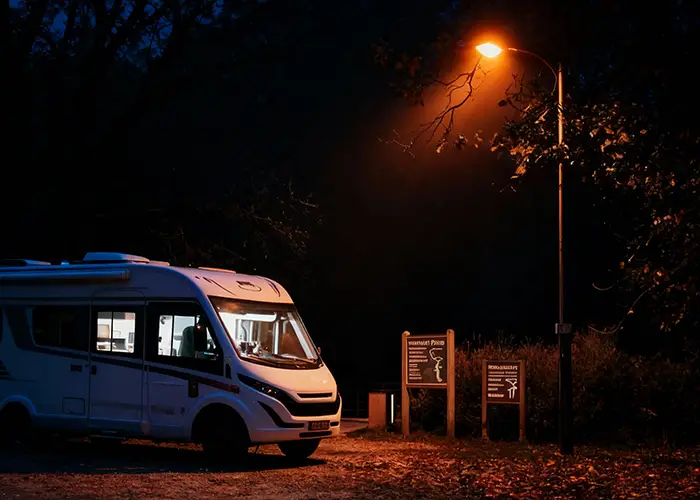
Beyond the Basics – The New Essentials
Today’s road explorers carry a sophisticated toolkit that would have seemed like science fiction a generation ago. Portable solar chargers with high-efficiency panels keep all devices powered without running engines or depleting house batteries. Foldable e-bikes extend exploration radius, allowing you to park your motor home and venture into areas inaccessible to larger vehicles. Lightweight cooking kits utilizing titanium and advanced polymers deliver restaurant-quality meals while weighing mere ounces.
GPS trackers provide both navigation assistance and emergency beacon functionality, automatically sharing your location with designated contacts if you fail to check in as scheduled. Advanced lighting systems feature multiple modes—from soft ambient lighting for evening relaxation to powerful beams for equipment repairs after dark. These accessories prioritize both safety and convenience, recognizing that technology should simplify travel routines rather than complicate them.
The Comfort-Adventure Balance
Modern adventurers reject false dichotomies between rugged authenticity and comfortable living. They understand that suffering through cold nights and inadequate lighting doesn’t make experiences more “real”—it just makes them less enjoyable. This philosophy drives demand for accessories that merge functionality with style, products that work flawlessly while also looking good in your mobile living space.
Vehicles like 4 berth campervans for sale serve as the perfect foundation for this customization philosophy. With sleeping capacity for four, these campervans provide enough space for families or friend groups while remaining manageable to drive and park. Their layout accommodates substantial accessory integration—from roof-mounted solar arrays to interior organization systems—without sacrificing livability. The modularity of these platforms means each traveler can build their ideal setup gradually, prioritizing upgrades that match their specific adventure style.
Sustainability on the Road
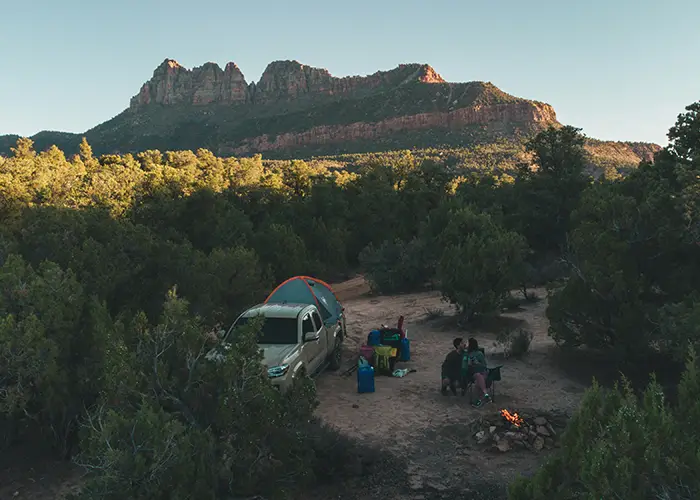
Eco-Friendly Choices for Conscious Travelers
The motor home industry is experiencing a green revolution. Electric and hybrid models are reducing emissions dramatically, with some manufacturers projecting fully electric lineups within the decade. Solar panel systems have evolved beyond basic trickle chargers into comprehensive power solutions capable of running air conditioning and cooking appliances. Bio-based fuels and zero-waste camping tools reflect growing awareness that adventure shouldn’t come at the environment’s expense.
Technology plays a crucial role in environmental stewardship. Smart monitoring systems track energy consumption patterns, identifying inefficiencies and suggesting optimizations. Water usage meters encourage conservation, particularly important when camping off-grid with limited tank capacity. Carbon footprint calculators integrated into navigation apps help travelers choose routes that minimize environmental impact.
Minimalism Meets Mobility
Many modern road travelers embrace minimalistic lifestyles not as deprivation but as liberation. Reduced clutter means easier cleaning, simplified decisions, and mental clarity. Modular design allows a few high-quality items to serve multiple purposes—a cutting board that doubles as a serving tray, a jacket that converts into a blanket. Repurposable accessories extend product lifecycles, reducing waste.
This mindful consumption approach benefits long-term travel sustainability in multiple ways. Lower weight improves fuel efficiency. Fewer possessions mean less money spent on storage and replacements. Most importantly, focusing on experiences rather than accumulating objects shifts priorities toward what genuinely matters during travel: connection, discovery, and growth.
Connectivity and the Tech-Driven Nomad
Staying Connected in the Middle of Nowhere
Remote locations need not mean digital isolation. Satellite internet systems now deliver broadband-equivalent speeds from virtually anywhere, though at premium costs. Cellular Wi-Fi boosters amplify weak signals, extending coverage range significantly. IoT hubs coordinate multiple devices, creating seamless networks within your motor home. These connectivity tools enable remote workers and digital nomads to maintain productivity from their mobile offices, conducting video conferences from national park campgrounds or submitting projects from coastal overlooks.
The boundary between adventure and digital lifestyle has become wonderfully blurred. You can spend mornings hiking pristine trails and afternoons attending virtual meetings, switching contexts without sacrificing either experience. This flexibility represents true freedom—the ability to integrate work and exploration rather than choosing between them.
Apps and Platforms Powering Mobile Living
Essential smartphone applications have become invaluable travel companions. Route planning software optimizes journeys based on road conditions, vehicle specifications, and points of interest. Weather monitoring apps provide hyper-local forecasts, crucial when deciding whether to continue toward that mountain pass. Campground review platforms crowd-source information about facilities, cell coverage, and nearby attractions.
AI-based systems are pushing capabilities further. Predictive algorithms analyze weather patterns, traffic data, and your travel history to suggest optimal routes and camping locations. Machine learning models forecast mechanical issues based on vehicle sensor data, recommending preventive maintenance before problems strand you remotely. Digital preparedness—downloading offline maps, saving emergency contacts, backing up important documents—remains essential before long expeditions.
The Future of Road Exploration
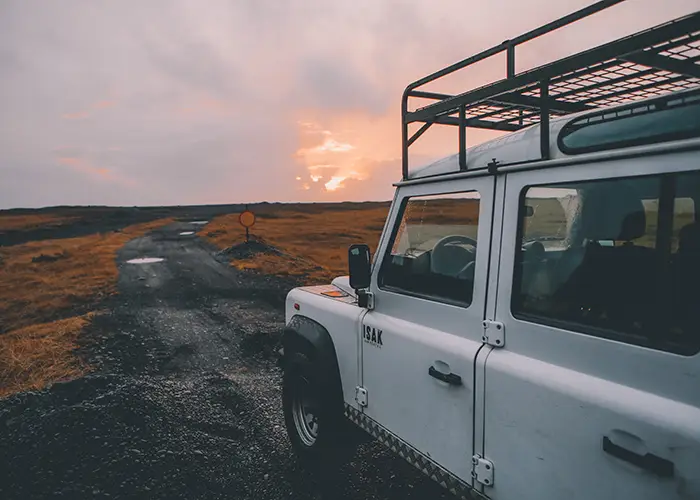
AI, Automation, and Autonomous Travel
The not-so-distant future promises self-driving motor homes that navigate highways while occupants sleep, work, or enjoy entertainment. Automated caravan convoys will allow multiple vehicles to travel in fuel-efficient formations, reducing environmental impact while enhancing safety through coordinated responses to hazards. Smart navigation systems will consider far more than just distance and time, incorporating weather predictions, traffic patterns, fuel prices, and points of interest to optimize entire journeys.
Predictive maintenance powered by machine learning will analyze thousands of data points from vehicle sensors, identifying potential failures before they occur and scheduling service appointments automatically. This proactive approach will dramatically improve reliability while reducing unexpected repair costs—critical factors for travelers depending on their vehicles in remote areas.
The Rise of Experience-First Travel
Contemporary travelers increasingly prioritize experiences over destinations. The journey itself becomes the purpose, with flexibility to linger wherever captivates or move on when wanderlust calls. Technology enables these deeper connections with nature by handling logistical complexities, freeing mental bandwidth for appreciation and wonder.
Future innovations promise even more immersive engagement. Integrated AR/VR systems will overlay historical information at heritage sites, identify geological formations during scenic drives, or even simulate future trail conditions before you commit to challenging hikes. Rather than distracting from authentic experience, thoughtfully implemented technology amplifies it, providing context and understanding impossible through observation alone.
The Road Ahead
Technology, optics, and sustainable accessories are fundamentally redefining what road travel means in the twenty-first century. Modern motor homes blend mobility with comfort, proving that adventure need not require sacrificing life’s conveniences. Advanced optical equipment extends our perception, revealing hidden dimensions of the natural world. Thoughtfully selected accessories enhance every aspect of travel while respecting environmental limits. The harmony between these elements—mobility, comfort, and ecological awareness—creates experiences our grandparents could scarcely imagine.


